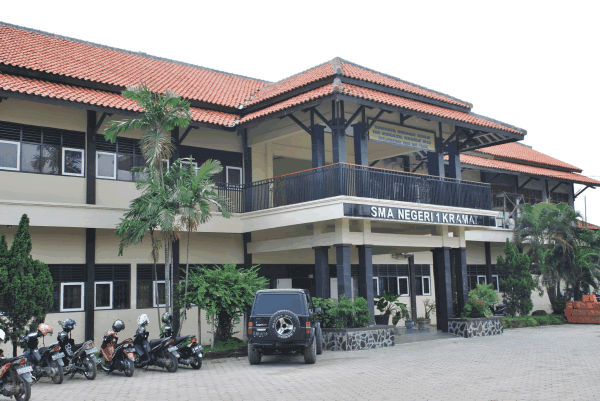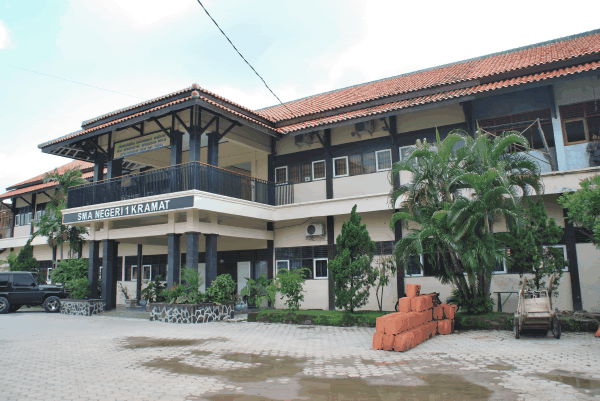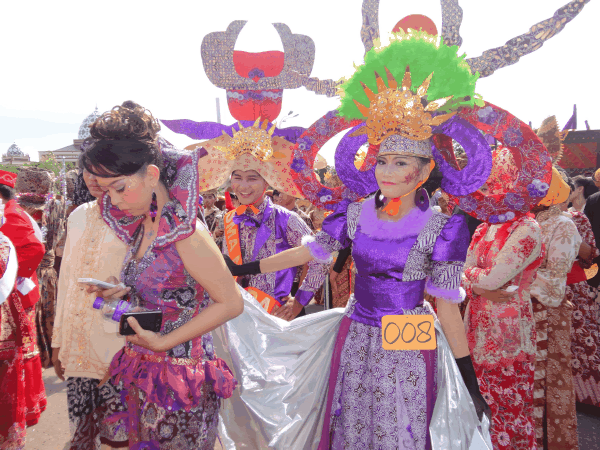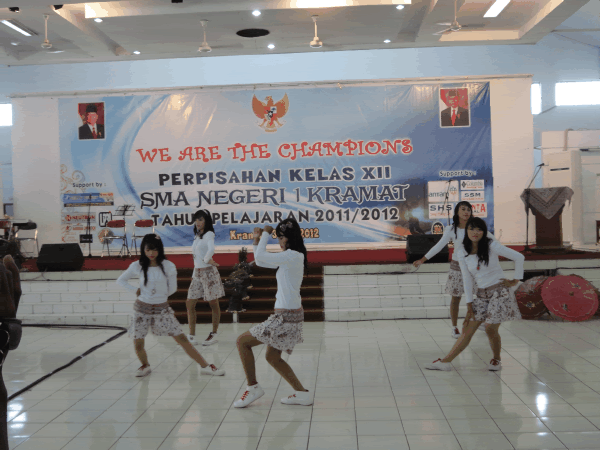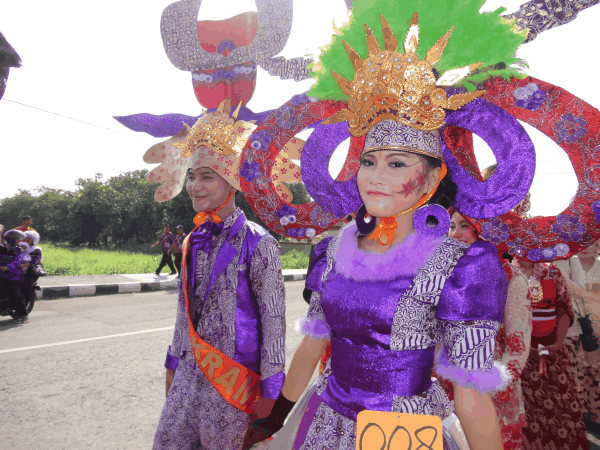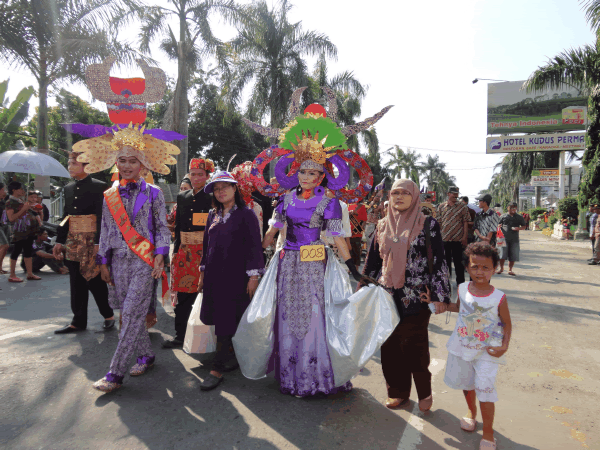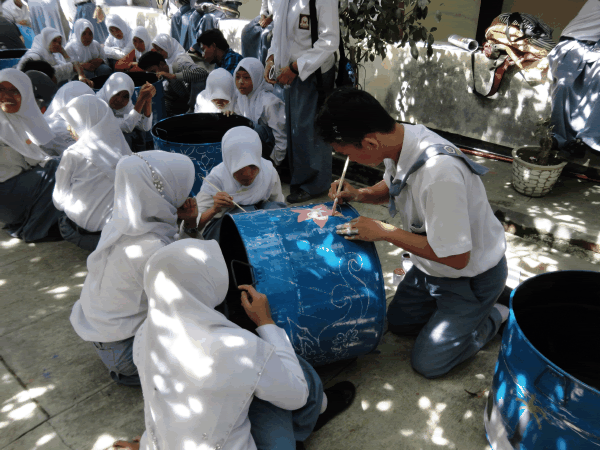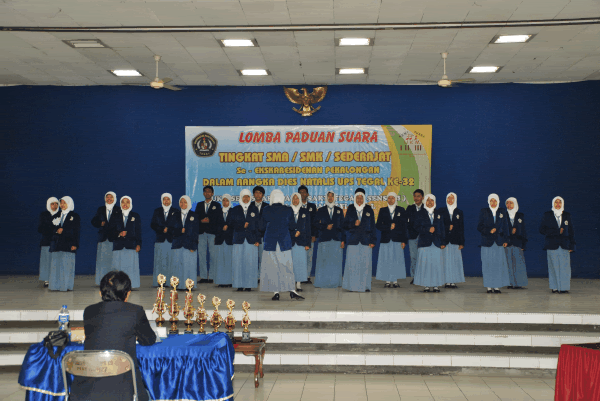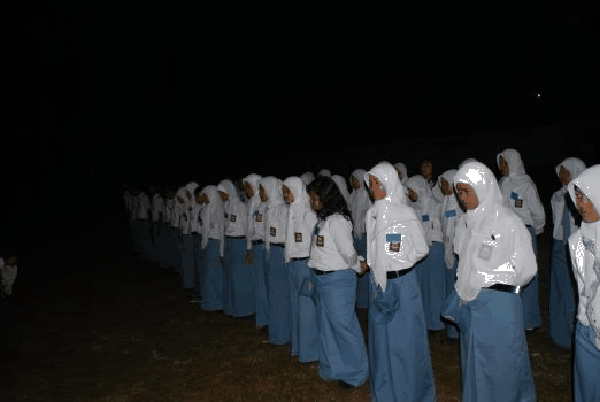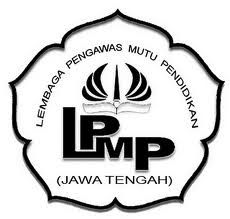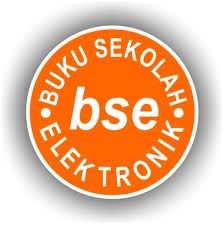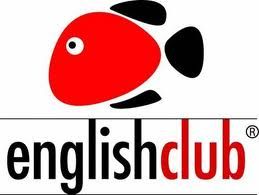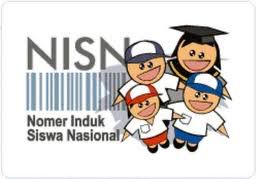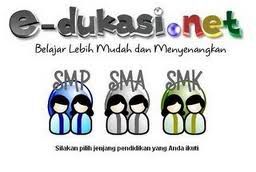STANDAR KOMPETENSI MENDENGARKAN
1. Memahami makna dalam percakapan transaksional dan interpersonal dalam konteks kehidupan sehari-hari
STANDAR KOMPETENSI MENDENGARKAN
2. Memahami makna teks fungsional pendek dan teks monolog sederhana berbentuk recount, narrative dan procedure dalam konteks kehidupan sehari-hari
STANDAR KOMPETENSI BERBICARA
3. Mengungkapkan makna dalam percakapan transaksional dan interpersonal dalam konteks kehidupan sehari-hari
STANDAR KOMPETENSI BERBICARA
4. Mengungkapkan makna dalam teks fungsional pendek dan monolog berbentuk recount, narrative dan procedure sederhana dalam konteks kehidupan sehari-hari
STANDAR KOMPETENSI MEMBACA
5. Memahami makna teks tulis fungsional pendek dan esei sederhana berbentuk recount, narrative dan procedure dalam konteks kehidupan sehari-hari dan untuk mengakses ilmu pengetahuan
STANDAR KOMPETENSI MENULIS
6. Mengungkapkan makna dalam teks tulis fungsional pendek dan esei sederhana berbentuk recount, narrative, dan procedure dalam konteks kehidupan sehari-hari
KOMPETENSI DASAR MENDENGARKAN
1.1 Merespon makna yang terdapat dalam percakapan transaksional dan interpersonal yang menggunakan ragam bahasa lisan secara akurat, lancar dan berterima dalam konteks kehidupan sehari-hari dan melibatkan tindak tutur: berkenalan, bertemu/berpisah, menyetujui ajakan/tawaran/ undangan, menerima janji, dan membatalkan janji
KOMPETENSI DASAR MENDENGARKAN
2.1 Merespon makna secara akurat, lancar dan berterima dalam teks lisan fungsional pendek sederhana (misalnya pengumuman, iklan, undangan dll.) resmi dan tak resmi dalam berbagai konteks kehidupan sehari-hari
KOMPETENSI DASAR BERBICARA
3.1. Mengungkapkan makna dalam percakapan transaksional dan interpersonal secara akurat, lancar dan berterima dengan menggunakan ragam bahasa lisan dan melibatkan tindak tutur: berkenalan, bertemu/berpisah, menyetujui ajakan/tawaran/ undangan, menerima janji, dan membatalkan janji
KOMPETENSI DASAR BERBICARA
4.1 Mengungkapkan makna dalam bentuk teks fungsional pendek (misalnya pengumuman, iklan, undangan dll.) resmi dan tak resmi dengan menggunakan ragam bahasa lisan dalam berbagai konteks kehidupan sehari-hari.
Saturday 27 August 2011
MATERI EXPRESSIONS
Expressions adalah beberapa jenis ungkapan yang lazim dipakai dalam berkomunikasi atau percakapan.
BEBERAPA JENIS EXPRESSIONS:
1. Introduction
(Perkenalan)
I’d like to introduce myself, ______
Let me introduce myself, ______
Allow me to introduce myself, ______
Let me introduce you to ______
This is ______
2. Greeting and Leave –Taking
(Selamat / Bertemu dan Berpisah)
How do you do ?
How are you ?
How are you doing ?
How is life ?
It is nice to meet you
I am very happy to meet you
Hello
Hi
Good morning, afternoon, evening, night
Good bye
See you later
See you soon
Cheerio
3. Gratitude and Appreciation
(Terima Kasih dan Penghargaan)
Thank you
Thank you very much
It is very kind of you
Congratulation
Congratulation on ______
Happy ______
Have a nice ______
Good luck
4. Apology
(Permintaan Maaf)
I am sorry
I don’t mean to ______
Forgive me
I hope you forgive me
5. Ability and Disability
(Mampu dan Tidak Mampu)
Yes, I can
No, I can’t
Yes, I am able to ______
No, I am not able to ______
I think I am able to ______
I think I am unable to ______
I can’t, I’m afraid
6. Certainty and Uncertainty
(Yakin/Pasti dan Tidak Yakin/Tidak Pasti)
I am sure
I am not sure
I am certain
I am not certain
I doubt that
I can’t decide
I don’t know
7. Agreement and Disagreement
(Setuju dan Tidak Setuju)
I agree
I disagree
I absolutely agree
I think so
I don’t think so
You are absolutely right
You are right, but ______
8. Like and Dislike
(Suka dan Tidak Suka)
I like it
I love it
I’m very keen on ______
I don’t like it
I hate it
9. Opinion
(Pendapat)
What do you think of ______
I think ______
Let’s talk about it
I wonder ______
Give me comments or suggestions, please
10. Asking and Offering
(Meminta dan Menawarkan)
Excuse me, May I ______ ?
Do you mind ______
Would you please ______
Would you help me, please ?
What can I do for you, _____?
11. Command and Prohibition
(Perintah dan Larangan)
Pay attention, please!
Listen to me!
Keep the room clean!
Let’s go!
Be on time!
Be a good student!
Don’t move, please!
Don’t go away!
Don’t worry!
Don’t be late!
No talking, please!
No smoking!
No parking in this area!
12. Warning
(Peringatan)
Watch out !
Be aware of ______ !
Be careful !
13. Preference
(Lebih Suka / Pilihan)
I like ______ better than ______
I prefer ______ to ______
I would rather ______ than ______
14. Exclamation
(Kekaguman)
What a wonderful world !
What a beautiful girl !
How beautiful she is !
How big the ship is !
It is great !
Excellent !
15. Sympathy
(Ikut bersimpati)
Take it easy
Don’t worry, everything will be all right
What a pity
I am sorry to hear that
Poor you
CONTOH SOAL UJIAN NASIONAL ( ‘EXPRESSIONS’ )
1. Shopkeeper : So, are you going to buy this gas stove?
Customer : Yes, but ______.
Shopkeeper : Please don’t worry about it. I believe that it will satisfy you. It has a three – year
guarantee.
(UN 2006/P1)
A. I’m certain the quality is good
B. there ‘s no doubt about the quality
C. I’m not sure about the quality
D. I can’t decide if it is good
PEMBAHASAN: Customer jadi membeli kompor gas (gas stove), tapi masih ragu. Kemudian Shopkeeper berkata “Jangan khawatir”. Maka ungkapan Customer adalah ungkapan merasa tidak yakin (uncertainty), yaitu: “I’m not sure about the quality” (Saya tidak yakin terhadap kualitasnya).
JAWAB: C
2. Lia : Oh, my wallet has been stolen.
Uti : ______. How did it happen?
Lia : Maybe a pickpocket took it when I was on the bus. (UN 2005/P1)
A. That’s a good idea
B. That would be nice
C. That’s great
D. What a pity
PEMBAHASAN: Lia berkata bahwa dompetnya telah dicuri. Maka ungkapan yang tepat adalah‘sympathy’, yaitu ‘What a pity’ (oh kasihan / sayang sekali).
JAWAB: D
3. Student : It seems to me that you are having trouble taking those books. Let me help you, Sir.
Teacher : Oh, ______ (UN 2005/P1)
A. can you help me?
B. that’s very kind of you
C. it’s none of your business
D. why don’t you bring these books
PEMBAHASAN: Siswa menawarkan bantuan. Maka ungkapan yang tepat dari Guru adalah ungkapan ‘gratitude/appreciation’, yaitu: ‘that’s very kind of you’ (Anda sangat baik).
JAWAB: B
4. Father : I’ve got a headache. ______
Mother : Certainly. Here it is.
Father : Thanks. (UN 2003/P2)
A. Can you get me an aspirin, please?
B. Will you take me to a doctor, please?
C. Will you help me hold my head?
D. Do you have time to help me?
PEMBAHASAN: Situasi dialog adalah Ayah sedang sakit kepala. Untuk menentukan kalimat Ayah yang kedua, perhatikan jawaban Ibu: ‘Certainly. Here it is’ (Tentu saja. Ini.). Berarti Ibu mengambilkan Ayah sesuatu. Maka ungkapan yang diucapkan oleh Ayah adalah ‘asking’, yaitu: ‘Can you get me an aspirin, please?’ (Bisakah kamu mengambilkan saya aspirin?).
JAWAB: A
5. Jane : When will you go back to Indonesia?
Rudi : ______. It depends on my study. (UN 2004/P2)
A. I’m sure
B. I’m not certain
C. I absolutely believe
D. I don’t understand
PEMBAHASAN: Perhatikan kalimat Rudi yang kedua: ‘It depends on my study’ (tergantung pada studi-ku). Berarti Rudi merasa tidak yakin atau merasa tidak pasti. Maka kalimat Rudi yang pertama ialah‘uncertainty’: ‘I’m not certain’.
JAWAB: B
6. Doni : How did you travel to Surabaya?
Santi : By “Argo Bromo” train. It’s a very good train. It took me just nine hours.
Doni : ______ (UN 2004/P2)
A. What train is it?
B. What a fast train!
C. How fast is the train?
D. How good the train is.
PEMBAHASAN: Isi percakapan tersebut menyiratkan Kereta Api “Argo Bromo” adalah kereta api cepat. Maka ungkapan Doni adalah ‘exclamation’, yaitu: ‘What a fast train!’ (Wow, betul-betul kereta api yang cepat!atau Alangkah cepatnya kereta api itu!). Ingat, salah satu ciri ‘exclamation’ adalah selalu diakhiri dengan tanda seru.
Monday 15 August 2011
LATIHAN DAN PEMBAHASAN SOAL UN SMA / MA PROGRAM IPS
UN SMA / MA PROGRAM IPS
Mata Ujian : Bahasa Inggris
Jumlah Soal : 25
Text 1
Years ago young children used to say they wanted to become train drivers or bus drivers. Today, to some children say, ‘When I grow up I want to become an astronaut.’ And it is quite possible that some of these children will do just that. In few years we have made enormous progress towards living and working in space. Here are some important dates in the history of space travel.
1957 The Russians sent a rocket into space and Sputnik 1, the first satellite, was sent into orbit around the earth.
1961 Yuri Gagarin became the first man in space.
1969 The American put a man on the moon. NASA astronaut, Neil Armstrong, became the first man to walk on the moon.
1971 NASA launched Mariner 9. Five months later, it became the first space trip to orbit the planet Mars.
1973 Pioneer 10 was launched by the USA. The little spacecraft has already gone beyond the nine planets and passed out of the solar system. It will go into deep space beyond our galaxy. It will travel billions of miles and journey past distant stars to the farthest points in the universe.
1977 NASA launched Voyagers 1 and 2. These two spacecraft flew close by and photographed the four large outer planets of the solar system: Jupiter in 1979; Saturn in 1980-81; Uranus in 1986; and Neptune in 1989.
1982 NASA launched the space shuttle Columbia. This was the first manned spaceship to leave the Earth and returned so that it can be used again.
1990 Both the Soviets and the Americans plan to build huge space stations, which will orbit the earth. There are plans to continue to put a man on Mars.
Taken from Vocabulary Builder
1. The text focuses on the information about _________.
A. the successful mission of sending astronauts to the moon
B. the important dates of the launching of spacecraft
C. the success of the Soviets’ outer space project
D. the discovery of the four large outer planets
E. the observation on certain planets
Kunci: B
Penjelasan : wacana memaparkan tanggal-tanggal peluncuran pesawat ruang angkasa.
2. The first spaceship to orbit the planet Mars is _________.
(A) Mariner 9
(B) Sputnik 1
(C) Voyager 1
(D) Voyager 2
(E) Pioneer 10
Kunci: A
Penjelasan: pesawat pertama ke orbit planet Mars adalah Mariner 9.
3. Which statement is not true according to the text?
(A) NASA launched Voyager 1 in 1971.
(B) The first man in space was in 1961.
(C) The first satellite was sent by Russians.
(D) It was the American who launched Pioneer 10.
(E) The space shuttle Columbia can be used for more than once.
Kunci: A
Penjelasan: pernyataan pilihan A bertentangan dengan kalimat ‘1977 NASA launched Voyagers 1 and 2’ (Peluncuran Voyagers 1 dan 2 tahun 1977, bukan 1971).
4. “Both the Soviets and the Americans plan to build huge space stations which will orbit the earth.” (1990s)
The word ‘huge’ means very _________.
(A) large
(B) broad
(C) bulky
(D) heavy
(E) wide
Kunci: A
Penjelasan: “Huge” semakna dengan “large”.
Text 2
Television has a great influence on our ideas about what is right and wrong about the way we should behave, and about life in general. Sometimes the values and life styles that we get from television are in conflict with those that are taught at home and at school. Critics of television point out that crime and western programs often appeal to a taste of violence, while many games show appeal greed. Many critics also believe that television should be used for socially constructive purposes as well as for entertainment.
The first commercial television broadcast was made in April 20, 1939 by Radio Corporation of America (RCA). Since 1939., it has become one of the most important facts or modern life. Television is very much part of the modern world. Its effects are felt all over the world.
Television is a reflection of modern world, say some people. It shows contemporary society. It affects customs and culture, others say. Television is bad for culture because it keeps culture from growing, say still others.
Good or bad, television is difficult to avoid. Its pictures enter home, stores, airports, and factories. It is here to stay!
5. What is the topic of the whole text?
(A) The social constructive purpose shown by television program.
(B) The different opinions on the influence of TV program.
(C) The educational aspects included in TV program.
(D) The cultural values reflected by TV program.
(E) The useful influence of television program.
Kunci: B
Penjelasan: wacana tentang pengaruh acara televisi (different opinion on the influence of TV program).
6. Which of these sentences is true according to the text?
(A) Television can influence all aspects of in our life.
(B) Having a television is a sign of modern life.
(C) Television doesn’t keep the culture growing.
(D) Television cannot be used for business.
(E) Many games shown constructive value.
Kunci: A
Penjelasan: sudah jelas pada kalimat awal paragraf 1. Televisi dapat berpengaruh terhadap seluruh sendi kehidupan
7. The following TV program gives bad influence on people, except that is related to _________.
(A) the ideas about what is right or wrong
(B) crime and western cultures
(C) values and life style
(D) greed appealing games
(E) a taste of violence
Kunci: A
Penjelasan: Program TV yang tidak dikategorikan berpengaruh buruk adalah ide-ide akan apa yang benar dan apa yang salah
8. “It affects customs and culture, others say”. (paragraph 3)
The italic word means _________.
(A) alters
(B) causes
(C) changes
(D) modifies
(E) influences
Kunci: E
Penjelasan: Affect yang berarti ‘berpengaruh’ bermakna sama dengan ‘influence’
9. The type of the text is _________.
(A) descriptive
(B) narrative
(C) report
(D) recount
(E) procedure
Kunci: C
Penjelasan: Bacaan ini hanya menjelaskan satu hal tentang manfaat dan kerugian televisi
Text 3
DKI will hold a festival of the Betawi art presenting Ondel-ondel and Tajidor at the opening ceremony of the Jakarta Fair on June 4. The city cultural office’s chief, Azhari Baedlawi, said Friday that 18 Betawi cultura_(10) had confirmed their (11)___ in the festival. “We hope the festival will encourage them to improve their (12) “Baedlawi said. The troupes’ performance will be judged in a parade through the ___(13)__ in Kemayoran Central Jakarta. Ondel-ondel is represented by a couple of giant ___(14)___ which usually perform for individuals, companies or special events held by the municipality.
10. (A) classes
(B) troupes
(C) numbers
(D) companies
(E) divisions
Kunci: B
Penjelasan: rombongan seniman rakyat dengan istilah ‘troupes’.
11. (A) exhibition
(B) cooperation
(C) information
(D) expectation
(E) participation
Kunci: E
Penjelasan: kata yang tepat untuk melengkapi kalimat ini ialah ‘keikutsertaan’ yang berarti ‘participation’
12. (A) responsibilities
(B) performance
(C) appearance
(D) experiences
(E) activities
Kunci: B
Penjelasan: Festival diharapkan dapat meningkatkan ‘penampilan’ mereka (penampilan = performance).
13. (A) parks
(B) fields
(C) courts
(D) grounds
(E) runways
Kunci: E
Penjelasan: yang dilalui parade adalah jalanan (runways).
14. (A) paintings
(B) puppets
(C) games
(D) dolls
(E) toys
Kunci: B
Penjelasan: ondel-ondel merupakan boneka (puppet).
15. A close cooperation among the member of ASEAN countries would bring mutual benefits, which will promote _________.
(A) efficiency
(B) effectivity
(C) responsibility
(D) prosperity
(E) activity
Kunci: D
Penjelasan: Kerja sama yang erat anggota ASEAN yang akan manfaat saling menguntungkan yang akan meningkatkan ‘kemakmuran’ (prosperity).
16. The sailing was cancelled because of the _________.
(A) thunder
(B) temperature
(C) condensation
(D) pressure
(E) weather
Kunci: E
Penjelasan: pelayaran ditunda karena cuaca (weather).
17. My father is 60 years old. He resigns from his job now.
The underlined word means _________.
(A) surrenders
(B) leaves
(C) submits
(D) departs
(E) turns
Kunci: B
Penjelasan: ‘resign’ berarti berhenti/ mengundurkan diri (leave the job).
18. I have an account at a bank when I need some money for my school fee, I go to the bank and _________ some.
(A) save
(B) cash
(C) deposit
(D) borrow
(E) withdraw
Kunci: E
Penjelasan: saya punya rekening di bank, karena perlu untuk uang sekolah saya mengambil uang di bank. (withdraw)
19. Rizky usually sits next to Dodi, but today he _________ next to Dani.
(A) sat
(B) has sat
(C) would sit
(D) is sitting
(E) was sitting
Kunci: D
Penjelasan: ‘Today’ untuk bentuk ‘present’ yang mengatakan sedang jadi Present Continuous Tense: S + am/is/are + V ing.
20. Mother can’t speak English _________.
(A) and so can father
(B) and neither can father
(C) but father can’t
(D) father can either
(E) and father can too
Kunci: B
Penjelasan: untuk kalimat eliptik negatif, kita gunakan and neither dan and……either, karena sudah ada kata kerja bantu ‘can’ maka harus digunakan jadi jawaban yang benar ‘and neither can father’
21. By the time I arrive home, the door _________ by my aunt.
(A) will lock
(B) will have locked
(C) is locked
(D) was locked
(E) will have been locked
Kunci: E
Penjelasan: By the time diikuti S + will + have + V3 karena subjeknya pasif ‘the door’ jadi S + will + have + been + V3
22. “_________” Neither does Ani.
(A) Tati didn’t do the exercises.
(B) Tati never does the exercises.
(C) Tati does the exercises.
(D) Tati and Ani do the exercises.
(E) Tati can’t do the exercises.
Kunci: B
Penjelasan: Neither does Ani untuk jawaban pernyataan negative karena ‘does’ berarti present tense. Jadi jawaban yang benar: ‘Tati never does the exercises’ (‘never’ menyatakan negatif).
23. Father always _________ the newspaper every morning.
(A) read
(B) reads
(C) reading
(D) is reading
(E) will read
Kunci: B
Penjelasan: ‘always’ menyatakan kebiasaan dan ‘every morning’ menyatakan ‘present tense’. Father always reads the newspaper every morning.
24. Dian has been studying English since she was ten.
This sentence means _________
(A) Dian never study English.
(B) Dian is still studying English.
(C) Dian was still studying English.
(D) English is difficult for Dian.
(E) Dian likes studying English.
Kunci: B
Penjelasan: S + have/has + been + Ving menyatakan sesuatu aktivitas yang telah dilakukan dan masih berlangsung.
Jadi: Dian is still studying English (Dian masih belajar bahasa Inggris hingga sekarang)
25. Iwan : Sorry to brother you, but could you tell me the way to the post office?
Didin : Well, turn right at the corner. The post office is about 100 meters from here.
Iwan : Thanks.
In the dialogue, Iwan is _________.
(A) rejecting help
(B) accepting an offer
(C) asking for information
(D) stating agreement
(E) expressing hope
Kunci : C
Penjelasan: ‘Could you tell me the way to the post office? pertanyaan yang digunakan untuk mencari informasi (asking for information).
Wednesday 10 August 2011
VISI DAN MISI SMA NEGERI 1 KRAMAT
A. MISI
Untuk mewujudkan visi, sekolah memiliki misi sebagai berikut:
1. Meningkatkan profesionalisme pendidik dan tenaga kependidikan;
2. Meningkatkan kualitas pembelajaran yang mengacu pada standar isi, standar proses, standar kompetensi lulusan dan standar penilaian;
3. Pemenuhan sarana dan prasarana yang menunjang proses pembelajaran berkualitas;
4. Meningkatkan prestasi akademik;
5. Meningkatkan prestasi ekstrakurikuler sesuai dengan potensi yang dimiliki siswa;
6. Membekali ketrampilan kepada siswa sesuai dengan bakat, sehingga menjadi siswa yang trampil, cerdas, beriman dan bertakwa serta mampu mengomunikasikan dirinya dan kemampuannya;
7. Mempersiapkan siswa ke jenjang perguruan tinggi bagi yang melanjutkan dan berwirausaha bagi yang tidak melanjutkan;
8. Menanamkan adat santun dalam sikap, tuturkata, dan perbuatan;
9. Peningkatan iman dan takwa kepada peserta didik melalui kegiatan intrakurikuler dan ekstrakurikuler.
10. Peningkatan kegiatan keagamaan di sekolah
Tuesday 9 August 2011
A. ACTIVE LISTENING
Situation 1 Soraya meets Adam at the cafeteria.
Soraya : Hello, Adam. How are you (1) …………… ?
Adam : Fine, thanks. How are you?
Soraya : I'm very well. Thank you.
Adam : Have you (2) …………. your lunch?
Soraya : Yes,I have.
I'd better be going, or I'll be (3) …….. at my office. Goodbye, Adam.
Adam : Goodbye, Soraya. See you tomorrow.
Situation 2 In the banquet room was a group of well-dressed people chatting
among tbem.relve.r. Soraya approached one of them.
Soraya : Good morning, Do you know who Susan Brandy is? Adam She's over there.
Soraya : Thank you. (Soraya went up to her). Hi. I am Soraya. How
do vou do?
Susan : Hello, Soraya. This is Peter and Teddy. I'm sure you've
(4) ………………… of them.
Soraya : How do you do, sir?
Peter : Hello. My wife has (5) … ……me a great deal about you.
Soraya : Nothing too terrible I hope, sir.
Peter : On the contrary. She has said only good things about you.
Sorava : Thank vou, sir. (She turns to Teddy). Good afternoon, sir.
Teddy : Hello, Sorava.
Sorava : It's a (6) …………. to meet you, sir.
Teddy : Thank you. You're (7) ……………. very well.
Sorava : So are you, sir. I'm so sorry about what happened (8) ……..
Teddy : Thank you. Are you set up here to take care of all of us?
Soraya : Oh, yes. I think we can make everyone (9) ………………
Teddy : That's good. Sorry but I would like to get freshened up.
Soraya : Of course. It was (10) …………… to meet you.
Teddy : Well, good night.
1. Where was Soraya?
2. How many people are there in the conversation?
3. Did Soraya know all the guests well?
4. What do you think she was doing in that room?
5. How did Soraya greet her new friends when she wanted to introduce herself?
AN EXCURSION TO BOGOR BOTANIC GARDEN
On Friday (1)…………….we went to (2) Bogor ………… Garden.
We went there by bus and We arrived at that (3) ………. garden at 10 o'clock.
Arriving at the garden, we were divided into two groups.Group A followed Mrs Nina and Group B followed Mr Ahmad. I was in Group A. Well, (4) ……….. we went to the odd tropical plants and Mrs Nina read us some of the information. Then, we looked at all the (5) …………. plants. After that, we vent to a little spot near the Raffles cemetery and (6) ……….. morning tea. Next, we did some sketching and then we (7) ………….. Group B at the information center to have our lunch.
Soon, it was time for us to go to the orchid section while Group B (8) …….. some research on flowers. Uhm ……… A lady led us to the orchid section. Then, she (9) ……….. about many kinds of orchid.
(10) ………… we had a look at the Indonesian orchid. Wow, we saw many_ kinds of Indonesian orchids. They were all beautiful. Later,
we took a look at the American, (11) ………. , and Asian orchid's section. It was (12) ……….. Soon after we had finished our observations, we went back outside and met Group B. (13) ……….., we got on the bus and returned to school. We really enjoyed the trip to Bogor Botanic Garden.
(Source Encarta)
Answer these questions based on the text above!
1. What is an excursion?
2. When and how did they go to Bogor Botanic Garden?
3. What time did they arrive at Bogor Botanic Garden?
Friday 5 August 2011
TELL PAST EXPERIENCES
I attended camp activities from 21 to 23 July 2011 in the village square Lebeteng. The committee has divided the campers into 27 teams, 9 teams of men, and18 teams of girl.
The committee has held many activities both physically and mentally, one of the most enjoyable activities, namely a wide games. On the activity of all participants must creep in a shallow river and filled with mud, so that our clothes were soiled by the mud. This was an interesting experience and it was forgotten until whenever.
Thanks hopefully my experience can entertain friends
By : Ana Khafidoh
Absen Number : 6
Kelas : X. 7
SMA Negeri 1 Kramat
Wednesday 3 August 2011
TELL PAST EXPERIENCES
I was very happy when I saw the new student notice a board at SMA 1 Kramat. Isaw in the order of 279, I always worried before the announcement was release.I did not sure that I would be received at Senior High School (SMA Negeri 1 Kramat), but my mother always supported to me not to be afraid or despair.
On 6 July 2011, I went to school to see the announcement. Finally, I accepted the order of number 276. On Saturday, 9th July 2011 I went to school to see the announcement of class division, and I got a class X. 7, I very happy because my friend is very good.
That is my experience that will not be forgotten until when ever
By : Wahyuni Ayuning Tias
Absen Number : 35
Kelas : X. 7
SMA Negeri 1 Kramat
ASKING FOR INFORMATION EXPRESSION
Get It Right
Ways to say it
Asking for information
• I’d like to know ….
• I’m interested in …..
• Could you tell me ….?
• Do you know ….?
• Could you find out …?
• Could I ask …?
• Do you happen to know …?
Guessing
• I’d say …
• Could it be …
• Perhaps it’s …
• I think it’s …
• It looks like …
• It’s difficult to say, but I’d guess …
Right or wrong
Correct:
• That’s right.
• Right.
• OK.
• Yes.
• Exactly!
Wrong
• No, I’m afraid not.
• Not quite.
• You’re close.
• I don’t know.
• I’m not sure.
When you are surprised:
• Really!
• Are you joking?
• Oh?
• Where? Show me.
• I can’t see that.
• Goodness!
• What?
Grammar in Action
Ways to say it
Useful phrases to express location:
• to face (is facing, faces)
• to be opposite (is opposite, are opposite)
• on, at, in
• under, beneath
• over, on top of
• at the top of, on the site of, at the bottom of
• inside
• outside
• beside, next to, near, in between
• in back of, in the middle of, in front of
• (to)(on) the left (of),(to)(on) the right (of)
• across from
• (at)(on) the corner of
• at the end of
• to be located (is located)
• to be situated ( is situated)
• to lie (lies, lie)
Get It Right
Ways to say it: Expressing congratulations
Expressions of congratulations:
• Congratulation!
• Congratulation on your promotion.
• May I congratulate you on winning the contest?
• I must congratulate you on your success.
• Please accept my warmest congratulations on your wedding day.
• I congratulate you on your being admitted in one of the favorite senior high schools in our district.
• Please accept my heartiest congratulations.
Respond to congratulations:
• Thanks!
• Thank you.
• Thank you very much.
Have you ever visited Singapore? Well, if you haven’t, let me tell you about Singapore. Singapore is an island city. Its population is about three millions people. Most Singaporeans live in high-rise apartments.
Uhm…Singapore is a beautiful city with lots of parks and open spaces. It is also a very clean city. You know, the business district is very modern, with lots of tall and new buildings.
Now, let me tell you about the old section of the city. In Chinatown, there are rows of old shop houses. The government buildings in Singapore are also very unique and antique. They date from the British colonial days.
Shopping! Wow, this is the part that I like very much! Singapore is famous for its many good shopping centers. Most of the goods are duty free. It’s a heaven for shoppers!
What about food? Uhmm ..yummy..yummy. It’s delicious. Singapore’s restaurants provide Chinese, Indian, Malay, and European food, and the prices are quite reasonable. I bet you’ll like it.
Well, since Singapore lies near the equatorial line, of course, it has a tropical climate, with a nice weather in both dry and rainy season.
London
Do you know the capital city of England? Right. London is the capital of the United Kingdom.
Look at the map carefully. Here is London. Can you see it? It is situated in southeastern England along the Thames River. London is a well-known city with a population of about 7 millions. It is the largest city in Europe. Although it is no longer included among the world’s most populous cities, London is still one of the world’s major financial and cultural capitals.
Are you still with me? OK, thank you. Let’s continue. London’s climate is generally mild and damp although it can be erratic. London is one of the driest parts of Britain. However, the weather is generally cloudy, and sometimes it rains on half the days of the year. With the mean temperature in July of about 18° C (about 64° F), London has warmer summers than most of the island. It’s frosty during winters in London. Fog frequently develops in winter.
Now let me tell you about the city. London’s metropolitan area extends for more than 30 miles. Most of Central London is located north of the Thames. It contains the City of London, the City of Westminster, and districts in the West End. The City of London is the heart of the city. The City of Westminster is the seat of the national government.
THANKS EXPRESSION
Expressing gratitude:
• Thank you.
• Thanks.
• Thank you very much.
• Many thanks.
• Thanks a lot.
• I thank you.
• I’m very much obliged to you.
• Thank you for your kindness.
• Thanks for everything.
• Thanks for your help.
Showing gratitude when refusing:
• Thanks anyway.
• No, thank you.
• No, thanks.
Part B. Try This. Read and listen to these conversations carefully. Pay attention to their intonation. Then, underline the expressions of showing gratitude
Conversation l
A : Hello, John Smith speaking.
B : Hello. This is Helen Jones. May I speak to your sister?
A : She just stepped out. I think she’s next door. I can call her if you like.
B : No, thank you. I’ll phone again later. Good-bye.
A : Good-bye
Questions
Where are they? Are they at the same place?
How do they get in touch?
Conversation 2
A : Excuse me, but can you tell me how to get to the museum?
B : I’m afraid I don’t know, I’m new here myself.
A : I see. Thanks anyway.
B : Sorry I can’t help you.
Questions
Where are the speakers?
Do they know each others very well? How do you know?
Conversation 3
A : Would you like a little more tea?
B : Yes, please.
A : Please have another piece of cake.
B : Thank you. Uhm, Jane, I heard you were ill so I brought you some fruit.
A : Thanks, Bill.
B : You’re welcome. By the way, this is for you, Mary.
A : For me? Really? Thank you, Bill. Oh, a book! How nice of you! Thanks a lot.
B : Don’t mention it, Mary. I’m very glad you like it.
A : Well, how about another piece of cake?
B : No, thanks. It’s delicious, but I’ve had plenty.
Questions:
Where are they?
Do they know each other well?
Conversation 4
A : Oops! Sorry.
B : It’s okay. Oh, your books are wet.
A : It doesn’t matter. It’s my fault.
B : Here. I’ll wipe your books with my handkerchief.
A : No, thank you. It’s not necessary. Don’t worry about it.
Question
What do the last sentences mean?
Conversation 5
A : I’m going to the post office. Would you like me to post that letter for you?
B : I’ll go to the post office myself a little later, so I’ll take it. Thanks anyway.
Question
What do the last sentences mean?
Conversation 6
A : Hi, Mary, are you busy tonight?
B : No. Why?
A : Well, I’m giving a farewell party for Tom. Can you come?
B : Yes, I’d love to. What time is it going to be?
A : At seven o’clock tonight.
B : All right. I won’t miss it. Thank you.
INTRUCTION AND ORDER EXPRESSION
Mrs. Shelley : Yes, please. Thank you. Hmm…This tea tastes good and smells fragrant
Tuti : Thank you. I’m glad you like it.
Mrs. Shelley : Tell me, how do Indonesians prepare a cup of tea?
Tuti : Well, first fill in the kettle with some water from the tap. Then, place it on the stove and wait until the water is boiling.
Mrs. Shelley : What do you do then?
Tuti : Next, put one or two teaspoonfuls of tea leaves into a teapot. Pour the boiling water into the teapot. To obtain the best flavor, the tea should soak for three to five minutes before being served.
Mrs. Shelley : Hmmm…Then, what do you do?
Tuti : Finally, pour the tea into cups and don’t forget to add some sugar in it. Stir it. The tea is ready to be served. Unlike in England, Mrs. Shelley, we don’t take milk in our tea.
Get It Right
Ways to say it: Offering
Offering to older people:
• Would you like a cup of coffee, Mr. Green?
• Should I get you a bottle of water?
• Could I offer you a glass of lemonade, Mrs. Lina?
• Would you care for some salad?
Offering to friends
• Want some?
• Have some.
• Chocolate?
• Glass of lemonade?
• Grab some for yourself.
• Would you like to have a pancake?
• Why don’t you have some lemonade?
• What can I get for you?
• What will you have?
Declining an offer:
• No, thanks.
• No, I really won’t thank you.
• Not for me, thanks.
• No, thanks. I’m not hungry.
Accepting an offer:
• Thank you
• Yes, please
• I’d like it very much
• Thank you, I would
• That would be very nice
Part E. Try This. Listen to Mike talking about how to make a cheese omelet. While listening, fill in the blanks. Then, answer the questions.
Have you ever eaten a cheese omelet? Do you know how to make a Cheese Omelet? No? Would you like me to tell it for you? Okay. This is the way. Listen to me.
To make a Cheese Omelet, you should prepare ingredients such as one egg, 50 grams of cheese, uhm... ¼ cups of milk, three tablespoons of cooking oil, uhm...what else ....? Oh, yeah, a pinch of salt and don’t forget some pepper.
Now, to make a Cheese Omelet, you will need some kitchen utensils like a frying pan, a fork, a whisk, a spatula, uhm..... a cheese grater ...and a bowl and of course ....a plate. Okay? Are you following me? Right! Let me tell you how to make it.
First, crack an egg into a bowl like this. Then whisk the egg with a fork until it is smooth. After that, add some milk and whisk well. Grate the cheese into the bowl and stir. Next, heat the oil in a frying pan, and pour the mixture into the frying pan. Then, turn the omelet with a spatula when it browns. See, like this. Okay, next cook both sides. After the omelet is done, place it on a plate, don’t forget to season it with salt and pepper and you can eat it while warm. It’s easy, isn’t it?
Bon appetite!
Moving Forward
Your Challenge. Listen to the cassette. Arrange the following jumbled instructions. Then identify the goal, materials(s) needed and steps. Then, take turns reading it aloud to your partner.
Cooking Rice
Well, to cook rice you will need some rice and water. Now, let me tell you steps of cooking rice. Listen carefully. First, wash some rice in cold water. Like this. Second, put the rice with some water in a pot. Then, boil and cool it slowly for about 20 minutes. (After 20 minutes) See, there is no more water now. After that, put the rice to the simmer and steam it for about 45 minutes. Now, the rice is ready to be served.
Part D. Fifth Challenge. Listen to the instructions of the correct procedures to use a life jacket. Then, put the correct order of the numbers in the pictures.
Ladies and Gentlemen, International regulation required us to demonstrate the use of the life jacket because part of our flights is over water. In case of emergency, take out the life jacket, located under your seat. Pull the jacket over your head, then fasten the jacket with the tapes around your waist. Do not inflate the jacket until you have left the aircraft. The jacket is automatically inflated by pulling beep sign or if necessary blows this tube. A light is attached to the jacket for attracting attention. The back of your seat should be in an upright position and table folded during take-off and landing. The life jacket should be removed only in case of emergency. The use of TV sets, AM and FM radios and radio cassette recorder, walkman and any mobile phones are prohibited on board as they interfere the communications and navigational system. We wish you enjoyable flight.
ASKING FOR AND SHOWING ATTENTION
Once upon a time there lived a very famous king, named the King of Crete. He had a stepson which was half bull and half man. He ordered Daedalus, a craftsman from Athens, to build a labyrinth in order to house the monster. When Daedalus finished his work, he wanted to leave Crete. But the king would not let him go.
Daedalus finally escaped through the air by using wings fixed to his body with wax. He also made wings for his son, Icarus and made him fly behind himself. But the son was so glad and excited that he soon went too high. As he flew nearer to the sun, it got warmer and warmer until at last the wax melted and his body fell down into the sea near Troy. The sea is now called the Icarian Sea.
Say It Right
• strange
• fighting
• monster
• myth
• Greek
• prince
• killed
• half bull
• half man
• Athens
Get It Right
Ways to say it: Asking for and showing attention
When you tell a story, you can use questions to attract your listeners’ attention. Whereas when you listen to a story, you can use several expressions to show that you are paying attention to what is being talked about.
Asking for attention
• Excuse me, I wonder if I could trouble you ….
• May I have your attention, please?
• Excuse me, ….
• Sorry to trouble you.
• Sorry to bother you.
• Look at me!
• Look what I’ve got here.
• Look here.
• Look!
• Hey!
• Attention, please!
• Excuse me!
Showing attention
• I see. - Tell me more about it.
• Oh, yes. - Really?
• Mmm... - Oh, my God! What happens next?
• A ha... - And then what?
• How interesting! - What’s next?
• I know what you mean. - Is that all?
• Oh, oh! - Indeed?
• Well, well, well… - Oh, no!
Ways to say it: Inviting someone
Offering an invitation:
• I’d like you to come to dinner.
• I’d like to ask you to come swimming.
• Would you like to go to the theater with me on Saturday night?
• How about going to the football match with me tomorrow afternoon?
Accepting an invitation:
• Thank you, I’d be glad to go.
• Yes, thank you. I’d be happy to go.
• Thank you so much for inviting me.
• Let’s meet at the school canteen.
• Yes, I’d love to.
• Sure.
• Great.
• All right.
Declining an invitation
• I’m so sorry, I’ll be very busy tomorrow night.
• I’m afraid that’s not too good fro me, what about after lunch?
Get It Right
Ways to say: Expressing sympathy
When you hear someone is hurt or sad, express your sympathy with the following expressions.
Offering condolences:
• I’m sorry.
• I’m sorry to hear about your father.
• I’m sorry to hear that your little Tweetie died.
• Let me offer my condolences.
• Let me tell you how sorry I am to hear about your grandmother.
• I know how you must feel.
• You must feel terrible about losing your brother like that.
Responding to condolences
• Thank you.
• That’s very kind of you.
• There’s nothing that can be done about it.
• It’s God’s will, I suppose.
• God gives and God takes away.
• That’s life.
Moving Forward
Part B. First Challenge. While you read the following fable, listen and pay attention to the intonation of the story teller. Then, answer the following questions.
The Fly and the Bull
There was once a little fly who thought he was very important. He felt proud of himself. One sunny morning, he flew around looking for someone to talk to. He saw a bull grazing in a field. He decided to fly down to talk to him.
The little fly flew down and buzzed around the bull’s head. The bull did not bother him. He went on chewing grass.
The fly then buzzed right inside the bull’s ear. The bull continued chewing grass. The fly thought, “What a stupid animal!”
Now, the fly decided to land on the bull’s horns to make the bull notice him. He waited for the bull to say something but the bull kept quiet.
The fly then shouted angrily, “Oh, Bull, if you find that I am too heavy for you, let me know and I’ll fly away!”.
The bull laughed and said, “Little fly, I don’t care if you stay or leave. You are so tiny and that your weight does not make any difference to me, so please be quiet and leave me alone. ”
Part C. Second Challenge. Does a fable always talk about animals? Listen to Mike, telling the story of ‘the Silver Key’. While listening, fill in the blank spaces with the words you hear.
The Silver Key
There was a traveler going to a distant town. When he reached the town it was almost midnight. He came to an inn but it locked from the inside. He knocked at the door. “Who are you?” asked a voice from inside the inn. “What do you want? The door cannot be unlocked at such an odd hour”. The traveler needed rest, food and shelter. He said, “Please, innkeeper, unlock the door. See, how cold outside!”
“It’s a strange lock and can be opened only with a silver key,” replied the innkeeper. The traveler passed a silver coin through a slit in the door, got the door unlocked and entered into the inn.
“I have left one of my two bags outside,” said the traveler. “Will you please bring it in?”
No sooner had the innkeeper gone out than traveler locked the door from inside. The greedy innkeeper was now shut out. He requested the traveler to unlock the door. “I’m helpless,” replied the traveler. “It’s a strange lock. It can be opened only with a silver key. The innkeeper was obliged to push through the slit a silver coin. The traveler got back his rupee and unlocked the door.
Tuesday 2 August 2011
GREATING AND LEAVE TAKING
All right, everybody, I’ll tell you about this great place.
On Friday 16 March we went to Bogor Botanic Garden. We went there by bus and we arrived at that famous garden at 10 o’clock
Arriving at the garden, we were divided into two groups. Group A followed Mrs. Nina and Group B followed Mr. Ahmad. I was in group A. Well, first we went to the odd tropical plants and Mrs. Nina read us some of the information. Then, we looked at all the lovely plants. After that, we went to a little spot near the Raffles cemetery and had morning tea. Next, we did some sketching and then we met group B at the information center to have our lunch.
Soon, it was time for us to go to the orchid section while Group B did some research on flowers. Uhm…A lady led us to the orchid section. Then, she explained about many kinds of orchid.
Next, we had a look at the Indonesian orchid. Wow, we saw many kinds of Indonesian orchids. They were all beautiful. Later, we took a look at the American, European and Asian orchid’s section. It was interesting. Soon after we had finished our observations, we went back outside and met group B. Then, we got on the bus and returned to school. We really enjoyed the trip to Bogor Botanic Garden.
Get It Right
Ways to say it: Greetings and leave-taking
Look again at the text about ‘An excursion to Bogor Botanic Garden’. Pay attention to the first sentence (i.e. All right, everybody, I’ll tell you about this great place.) You can use this first sentence to open a conversation before you share your past experience to others. However, you can also use greeting to open a conversation and use leave-taking for closing.
Formal Greeting
• Good morning.
• Good afternoon.
• Good evening.
• Good morning, sir.
Informal greeting
• Hi, Lizzy!
• Morning, Jim!
• Hello.
Initial greetings
• How are you?
• How’s it going?
• How are you doing?
• How’s life?
Responding to initial greetings
• Very well, thank you and how are you?
• I’m good/okay/alright.
• Very well, thank you.
• Oh, pretty good.
• Not too bad, thanks.
• Fine, thanks.
• Excellent.
Pre-closing
• OK then…
• I’ve got to go now.
• So, I’ll see you next week.
• I think I’d better be going now.
• Well, it’s time for me to leave.
• I think it’s already late at night.
• I must be going home.
Closing/leave-taking
• Good bye.
• Bye-Bye; Bye; Bye now; See you. Take care.
• See you later ---- Fine.
• See you soon ----- OK.
• See you tonight ----- All right.
• Good night.
